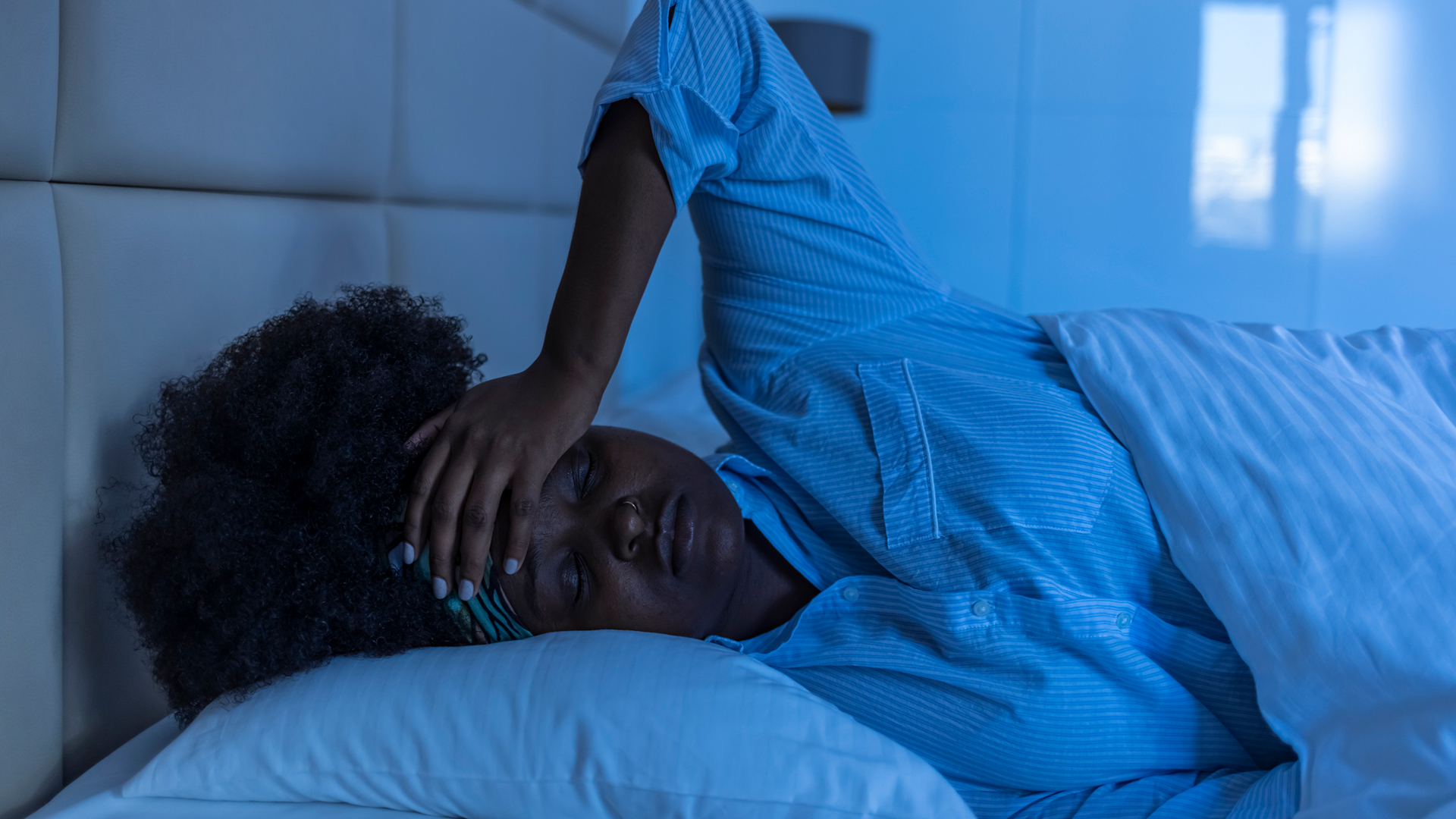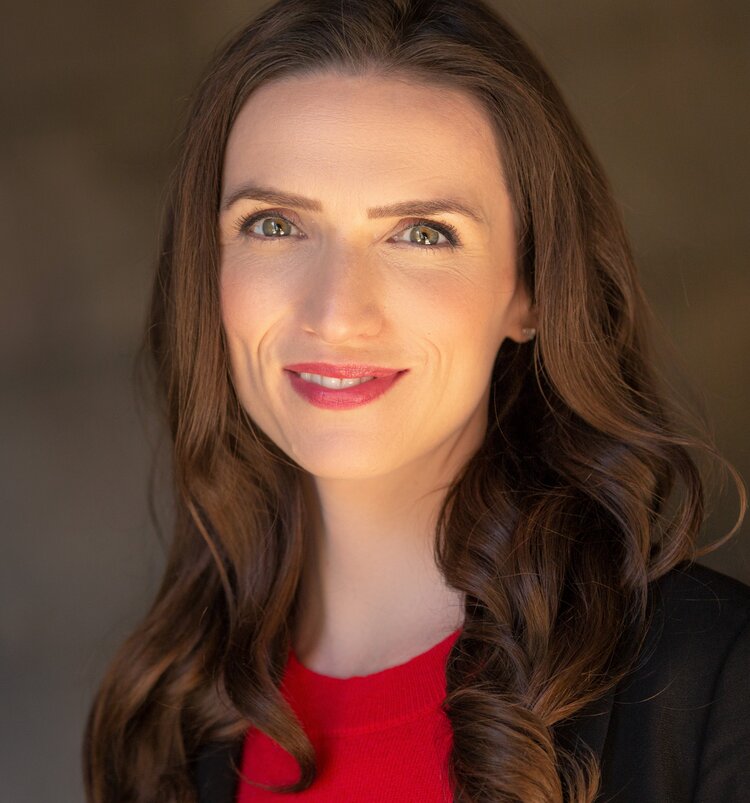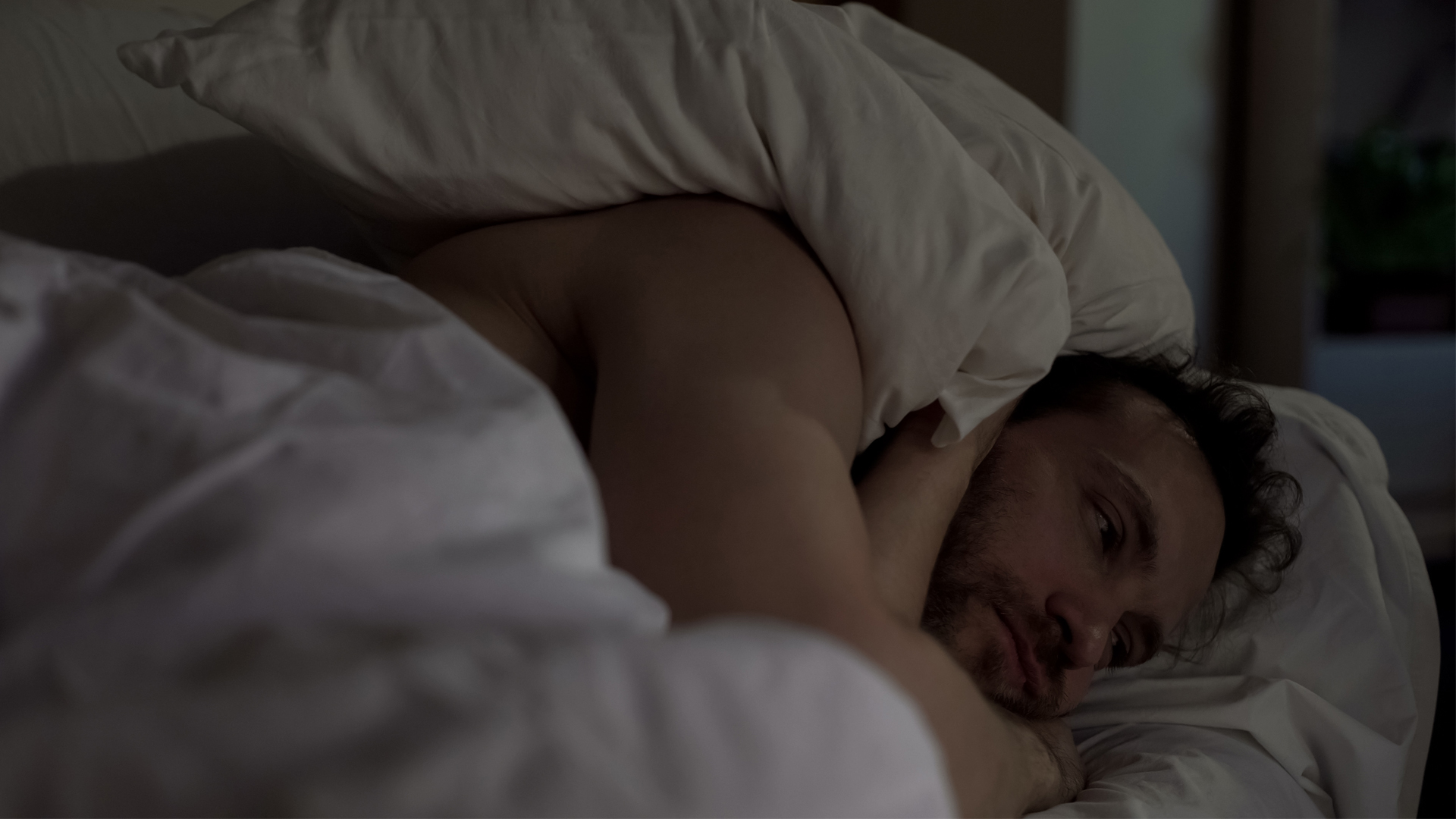Can't sleep? An expert reveals why anxiety may be worse at night
Experiencing anxiety at night can interfere with sleep.

Occasional anxiety is a normal part of life, from a case of nerves before a big test to embarrassment in an uncomfortable social situation. But once anxiety becomes persistent and recurring, it becomes known as generalized anxiety disorder, and impacts a person’s everyday life.
Anxiety can also interfere with sleep. About 50% of people with anxiety disorder also experience sleep issues, according to 2022 research in the journal Sleep Medicine Reviews.
Live Science spoke with an expert to understand why anxiety can be worse at night.
Why can anxiety sometimes be worse at night?
One reason anxiety may worsen at night is that people simply have less of an outlet for their nervous energy.
"During the day, people are busy with work, social and familial obligations," said Charissa Chamorro, a New York-based clinical psychologist who specializes in anxiety and sleep disorders. "Many people with anxiety become adept at channeling the excess energy into productive projects."

Charissa Chamorro is a postdoctoral fellow at Central Park West Psychological Consulting in New York City who specializes in the evaluation and treatment of anxiety disorders. She also lectures and supervises child psychiatry fellows at the Icahn School of Medicine at Mount Sinai. She received her PhD in Clinical Psychology from Long Island University and completed a pre-doctoral internship at the Mount Sinai Adolescent Center.
But at night, Chamorro said, people slow down and have fewer distractions, leading to an increase in feelings of anxiety.
"A key feature of anxiety [disorder] is persistent and excessive worry," Chamorro said. "When you are lying in bed with nothing to distract you, worry can become pronounced."
Role of fear and darkness
It's possible that people in general —– not just those who suffer from an anxiety disorder — may be more prone to anxiety and fear at night, one study suggested.
The 2015 study, published in the International Journal of Psychophysiology, found that people without anxiety disorder who were shown the same fear stimuli during the day and at night displayed an increased fear response at night. This was measured physically (heart rate and skin conductance activity) and psychologically (subjective reports of fear). This suggests that people may process information differently — and be more susceptible to anxiety — at night, though it's not clear why, the authors said.
But for people who suffer from chronic stress or anxiety, other factors may partly explain why the worry monster so often rears its head at night.
"Generally, when we experience stress or perceive a threat, the body produces adrenaline and cortisol, which enable us to focus on the perceived threat," Chamorro said. "Once the threat has passed, cortisol and adrenaline levels should return to normal. However, when people experience chronic stress or anxiety, cortisol can remain elevated."

Cortisol, melatonin and other hormones tied to sleep are generally regulated on a 24-hour cycle known as the circadian rhythm.
Normally, cortisol levels peak in the morning and then drop slowly throughout the day, reaching a low point at midnight, according to a review of studies published in the journal Sleep Science in 2015.
But elevated adrenaline levels during the day in and into the evening in people with anxiety may keep cortisol levels high and disrupt when other sleep hormones are released. That, in turn, may mess with sleep, the researchers speculated.
And there's evidence that worrying about sleep can worsen the problem, Chamorro said.
"Several nights of high anxiety and disrupted sleep may lead to negative expectations about sleep, which can further hurt sleep — it can become a vicious cycle," she said. In other words, worrying about losing sleep can lead you to lose even more sleep.
But while some factors that worsen nighttime anxiety are outside your direct control, there are some triggers you can avoid, Chamorro said.
"Caffeine and other stimulants, electronic devices, stress and sleep deprivation are all triggers," she said. So the daytime choices people make, such as drinking caffeine too close to bedtime, may have knock-on effects that worsen anxiety at night.
Sign up for the Live Science daily newsletter now
Get the world’s most fascinating discoveries delivered straight to your inbox.
Louise Bond is a UK-based writer specializing in health and wellbeing. She has over eight years of experience in management within health and care and brings this passion and expertise to her writing. Louise has been published in The Guardian, Planet Mindful and Psychreg among others. She is at her happiest when she is out in nature, whether that’s on an invigorating hike or pottering in the garden.











